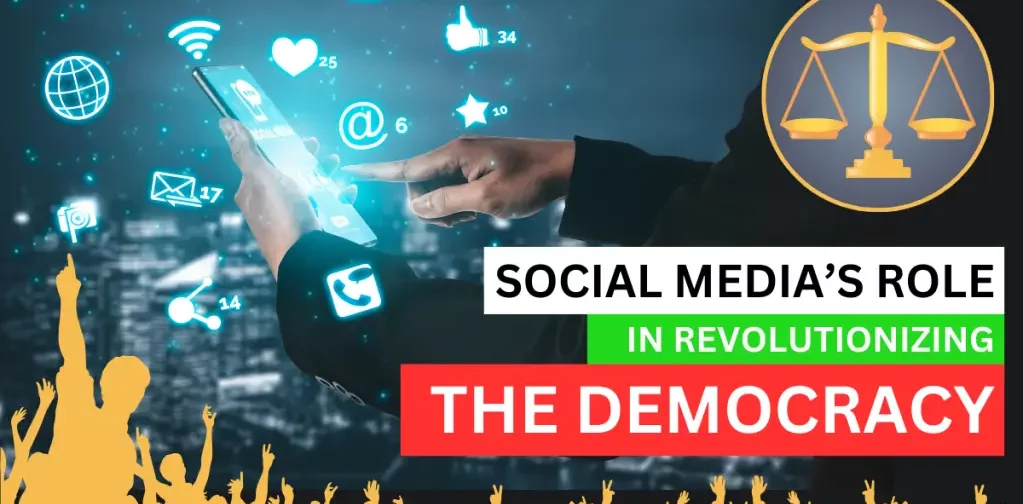
- Home
- About
- Knowledge Center
- Legislative Landscape
- Resources
- #TOGETHERFORBHARA
Media has long been considered the fourth pillar of democracy, as it not only reports what is happening in the world but also has the potential to build public opinion on the issues of the day. The word “democracy” means people’s participation. Media facilitates this participation. However, the advent of social media has changed the way people participate in democracy today. Compared to traditional media, social media has a wider reach, is easily accessible, allows for mass participation, and provides instant updates.
Now, people may use the Internet to organize and demand better services, increased transparency, and meaningful participation in the political arena by using social media platforms. People around the world can now shape global awareness, situate issues at a national level, and drive political action. The way people connect and use their freedom of expression and information, as well as other associated and often conflicting basic rights, has been transformed by new technologies and social media.

Image credits: Tech Policy Press
Challenges ahead:
The Internet was initially heralded as a sign of liberty and equality. However, the “democratization” of content creation and the centralization of online distribution channels like Twitter (Now X), Google, and Facebook have had several unintended consequences, including the spread of fake news, the use of disinformation by both the public and private sectors, and—most importantly—the entry of extremely powerful private actors who effectively control the information highways.
Globally, governments and non-state actors alike have significantly stepped up their attempts to control social media content in order to skew online debates and occasionally even stifle political criticism. As per the most recent study by Freedom House, the use of manipulation and misinformation techniques significantly impacted elections in a minimum of 17 nations in one year, thereby impairing the capacity of voters to select their leaders through legitimate discourse and reliable news. This creates security risks and calls into question the validity of democracy itself 1.
There are a lot of affordable, easily used, and publicly accessible cyber capabilities. Social media’s explosive expansion and the waning power of traditional, reliable information sources make it simpler for enemies to manipulate public opinion through the media by spreading misinformation and propaganda through cyberspace and other means.
The use of the Internet by election officials to enhance voter services is growing. The transition of these services to the internet makes them more susceptible to cyberattacks. It is very likely that the scope and sophistication of cyber threat activities against democratic processes around the world will increase in the coming years. Some countries may encourage such aggression, as in the case of election-era cyberattacks in the Netherlands, the United States, and Ukraine.
Additionally, these cyber threats violate fundamental human rights such as privacy and undermine the integrity of elections and the legitimacy of democracy. The threat of fake news is unlikely to diminish in the future. In fact, as political use of the Internet and social media increases, its presence will definitely increase.
Taking into account the possibility of exploitation of social media by such organizations, the Information Technology Act, 2000 contains a provision that allows the Central Government to block public access to information on social media, on certain grounds namely in the interest of sovereignty and integrity of India, defense of India, security of the State, friendly relations with foreign States or public order or for preventing incitement to the commission of any cognizable offense relating to above.
Subsequently, even though social media has tremendous potential to maintain and proliferate majority rule standards, it ought to as it were to be utilized in a bona fide way to advance legal political interface. Besides, social media, in the nonappearance of a protection and information assurance administration in a nation, is profoundly helpless to misuse by organizations who control the brain research of people by utilizing the information of social media clients, without their assent, or indeed information.
References:
Singh, A. (2020, October 30). Democracy in times of social media. The Indian Express. https://indianexpress.com/article/opinion/democracy-in-times-of-social-media-6910382/
